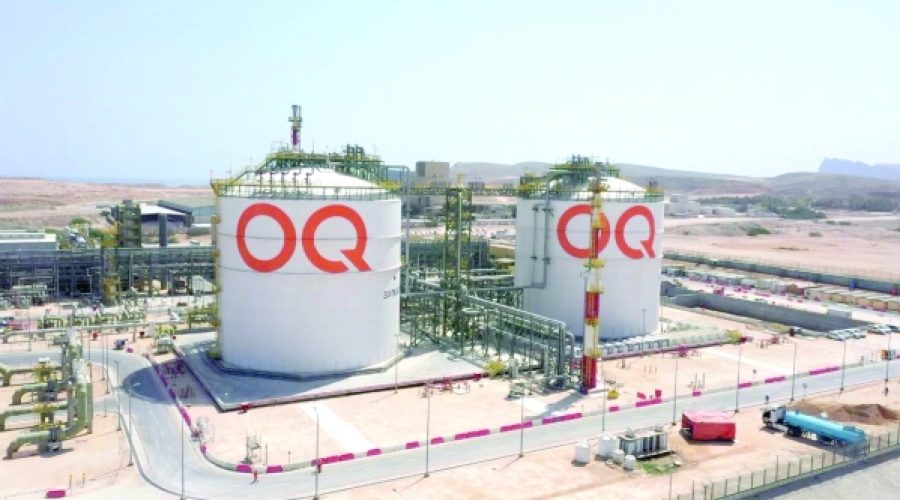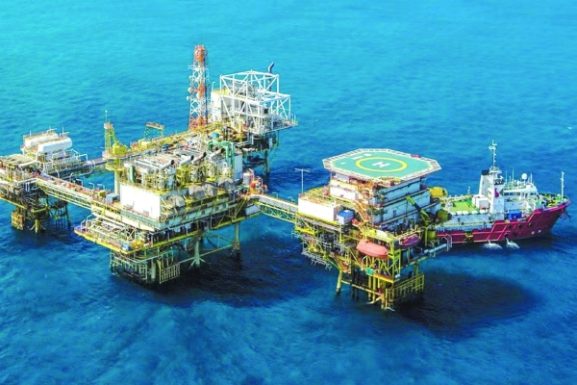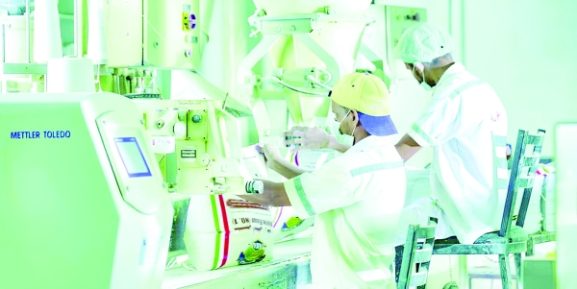Oman-Iraq Crude Storage Pact: What the 10M-Barrel Project Means for Regional Energy Investors
MUSCAT – Duqm’s aspiration to become a global energy logistics hub received a significant advancement on Wednesday, September 3, 2025, as two subsidiaries of OQ, Oman’s state-owned integrated energy group, signed strategic memoranda of understanding (MoUs) with Iraq’s State Oil Marketing Organization (SOMO). These agreements aim to deepen energy cooperation between Oman and Iraq.
Signed during the official visit of Iraqi Prime Minister Mohammed Shia’ Al Sudani, the MoUs mark a new milestone in Oman-Iraq energy relations, reinforcing the two nations’ roles as vital centers in the global crude oil market, according to OQ.
The first MoU involves OQ’s Oman Tank Terminal Company (OTTCO), which operates a major crude oil storage terminal at Ras Markaz near Duqm. Under this agreement, OTTCO will partner with SOMO to develop an integrated crude oil project at Ras Markaz. Initially, the project will feature storage, loading, and unloading facilities with a starting capacity of 10 million barrels, with plans for future expansion.
OQ highlighted, “The first memorandum establishes a large-scale crude storage project at Ras Markaz with an initial capacity of 10 million barrels, creating modern infrastructure to support global distribution.”
OTTCO emphasized, “This strategic partnership reflects the strong relations between the Sultanate of Oman and the Republic of Iraq, and underscores OTTCO’s ambitious vision to position Duqm as a regional energy hub while opening new horizons for growth and economic integration.”
The second MoU sees OQ Trading, the group’s commodities trading division, collaborating with SOMO to market Iraqi crude internationally. This partnership aims to harness combined expertise to boost value creation and broaden market reach.
OQ stated, “Together, these memoranda extend beyond trade. They embody a shared commitment to building sustainable economic ties, exchanging knowledge, and advancing OQ’s ambition to grow as a trusted global partner in energy investment and trade.”
Central to these agreements is Ras Markaz’s strategic value as a crude storage and logistics hub, bolstered by Duqm’s proximity to vital maritime shipping routes in the Indian Ocean, offering access to markets across Asia, Africa, and Europe.
The Ras Markaz terminal currently supplies the Duqm Refinery through an 80-kilometre pipeline, directly transporting crude oil to the refinery. Its infrastructure includes eight large tanks, floating platforms for import-export operations, seven kilometres of subsea pipelines, and a pumping station linked to the storage tanks.
With advanced technical capabilities, the terminal can blend different crude oil grades and efficiently load and discharge vessels. Spread over 40 square kilometres, Ras Markaz is designed to hold approximately 200 million barrels of oil.
In a related development from April, OTTCO signed an agreement with Royal Vopak of the Netherlands to develop an integrated hub in the Special Economic Zone at Duqm (SEZAD). This partnership focuses on storage and handling of hydrocarbons, chemicals, and low-carbon products, as well as building infrastructure for oil, chemicals, LPG, LNG, hydrogen, ammonia, and CO₂ storage solutions.
These strategic initiatives further solidify Duqm’s rising status as a key global energy logistics center.
Special Analysis by Omanet | Navigate Oman’s Market
The strategic MoUs between OQ subsidiaries and Iraq’s SOMO signal Duqm’s rise as a pivotal energy logistics hub, leveraging its world-class Ras Markaz terminal and proximity to key maritime routes. This partnership opens significant opportunities for Oman’s energy sector to expand crude storage, enhance market access, and boost trade value by integrating with regional supply chains. Smart investors should consider the growing infrastructure and regional integration in Duqm as a gateway for future energy and industrial diversification, while businesses must prepare for increased activity and collaboration across energy markets.



